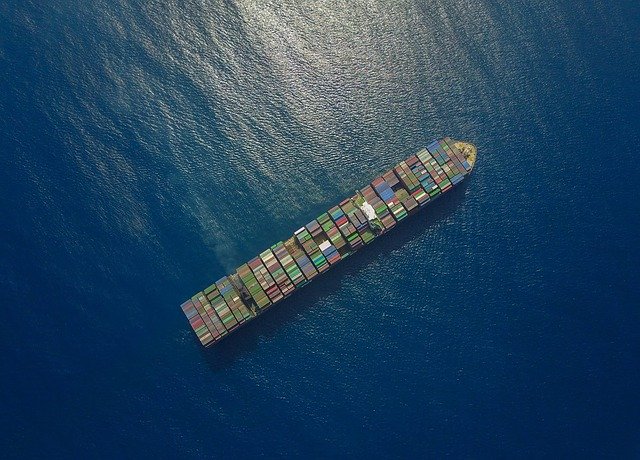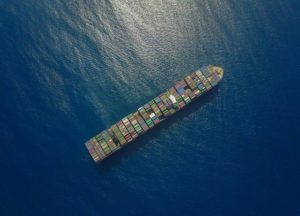

The Maritime Industry Authority (MARINA) has extended to one year validity of the special permit given to Philippine-registered domestic ships temporarily operating overseas.
According to MARINA Memorandum Circular (MC) No. OS 2020-01, dated April 23 but released on August 31, the validity of the special permit is stretched to one year and is renewable for the same period. Previously, the permit was valid for one to three months per issuance and renewable for the same period.
MC OS 2020-01 amends certain provisions of MC 2013-04, which provides omnibus rules on the issuance of special permit for temporary use of Philippine-registered ships whether trading overseas or domestic.
MARINA in a statement said the amendments aim to “promote the competitiveness of Philippine-registered ships by providing flexibility to their operation” amidst the coronavirus pandemic.
They are also in support of continued shipping trade in the Brunei Darussalam, Indonesia, Malaysia, the Philippines-East ASEAN Growth Area (BIMP-EAGA) region and with the Philippines’ neighboring countries.
Under MC OS 2020-01, only ships with class certificates from MARINA-accredited class societies will be granted the special permits. Exempt from this classification requirement are traditional ships engaged in barter trading or border crossings between the specially designated points in the southern provinces of Mindanao and Palawan.
Several ports in Mindanao and Palawan are designated ports under BIMP-EAGA. These are Kuala Belait and Muara in Brunei; Balikpapan, Benjarmasin, Bitung, Jayapura, Makassar, Nunukan, Pantoloan, Pare-Pare, Pontianak, Sorong, Tarakan, and Ternate in Indonesia; Bintulu, Kuching, Kudat, Labuan, Lahad Datu, Menumbok, Miri, Sandakan, Sepanggar/Kota Kinabalu, Sibu, Tanjung Manis, and Tawau in Malaysia; and Bongao, Brooke’s Point, Cagayan De Oro, Davao, General Santos, Glan, Pagadian, Puluan, Zamboanga, Siasi, Jolo, and Bongao in the Philippines.
Under MC OS 2020-01, all applications for these special permits should now be filed before the MARINA Central Office Processing Center (COPC), except for ships that will trade in the BIMP-EAGA routes and ports. Previously, applications were submitted to MARINA’s Overseas Shipping Office.
Applicants serving BIMP-EAGA routes may opt to file their application at either the COPC or at regional offices in Batangas City, Zamboanga City, Cagayan de Oro, Davao City, and General Santos City.
The special permit should be signed by the MARINA deputy administrator for operations, MC OS 2020-01 noted.
The special permit for ships that will ply BIMP-EAGA routes should be approved and signed by the MARINA deputy administrator for operations, directors of the MARINA regional offices, or their officers-in-charge.
In line with regional agreements, MC OS 2020-01 also inserts a provision which states that non-convention Philippine-registered domestic ships, including traditional ships, may engage in overseas trade in the BIMP-EAGA routes and gateway ports subject to safety standards set out in the Philippine Merchant Marine Rules and Regulations (PMMRR) 1997, and its subsequent amendments.
This is consistent with the Memorandum of Understanding (MOU) between the governments of BIMP-EAGA and the 2018 MOU on the improvement of Safety Standards and Inspection for Non-Convention Ships within ASEAN Member States.
MC OS 2020-01 also states that MARINA exercises exclusive jurisdiction over traditional ships without prejudice to the authority of the Bangsamoro Government to regulate barter trade and counter-trade pursuant to Republic Act No. 11054.
And under MC OS 2020-01, for a ship that reverts its operation either from domestic to overseas operations or vice-versa, the special permit will still be valid for its entire duration. The ship owner or operator must inform MARINA five days prior to the planned reversion to domestic trade or to overseas operations.
Previously, the special permit would be revoked once the ship reverted to domestic operations.
At the same time, MC OS 2020-01 amends the 24-item requirement for application of special permit and increases it to 33. The additional requirements include Certificate of Class, Cargo Ship Safety Certificate, Certificate of Public Convenience, International Air Pollution Prevention Certificate, International Energy Efficiency Certificate, Minimum Safe Manning Certificate, International Ballast Water Management Certificate, Certificate of Philippine Registry, Certificate of Ownership, Maritime Labor Certificate, and safety certificates depending on the type and size of ships for conduction purposes abroad.
The new policy also inserted a list of pre-acceptance documents for traditional ships. – Roumina Pablo




